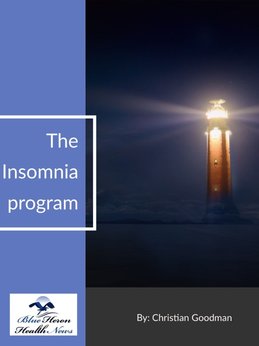
The Insomnia Program™ By Christian Goodman This program has been created by Christian Goodman, a natural health expert and sufferer of insomnia. He has used an audio program to let your fall sleep with the help of a bit of a hypnotic effect on your body.
What is the relationship between insomnia and obesity?
Insomnia and obesity are closely linked, with each condition potentially contributing to the development and exacerbation of the other. Here’s an overview of the relationship between insomnia and obesity:
1. Sleep Deprivation and Hormonal Imbalance
- Impact on Appetite-Regulating Hormones: Insomnia and sleep deprivation can disrupt the balance of hormones that regulate hunger and appetite. Specifically:
- Leptin: This hormone helps suppress appetite and signals to the brain when the body is full. Sleep deprivation reduces leptin levels, leading to increased hunger.
- Ghrelin: Known as the “hunger hormone,” ghrelin stimulates appetite. Insomnia and lack of sleep can increase ghrelin levels, leading to a stronger feeling of hunger and increased calorie intake.
- Resulting Weight Gain: The combination of reduced leptin and increased ghrelin can lead to overeating and weight gain, contributing to obesity.
2. Increased Caloric Intake and Poor Dietary Choices
- Cravings for High-Calorie Foods: Sleep-deprived individuals are more likely to crave high-calorie, carbohydrate-rich, and sugary foods. These cravings are partly driven by changes in brain activity related to reward and pleasure, which can be heightened by sleep loss.
- Late-Night Eating: Insomnia can lead to late-night snacking or irregular eating patterns, which can contribute to higher caloric intake and weight gain. Eating late at night is also associated with poorer metabolic outcomes and an increased risk of obesity.
3. Reduced Energy Expenditure
- Decreased Physical Activity: Insomnia often leads to fatigue and low energy levels during the day, which can reduce the motivation to engage in physical activity. Lower levels of physical activity contribute to a positive energy balance, where calorie intake exceeds calorie expenditure, promoting weight gain.
- Sedentary Behavior: Sleep-deprived individuals are more likely to engage in sedentary behaviors, such as watching TV or sitting for extended periods, which further reduces overall energy expenditure.
4. Impaired Glucose Metabolism and Insulin Resistance
- Insulin Sensitivity: Insomnia and chronic sleep deprivation can impair the body’s ability to regulate blood sugar levels by reducing insulin sensitivity. This condition, known as insulin resistance, makes it more difficult for cells to absorb glucose from the bloodstream, leading to higher blood sugar levels and an increased risk of obesity and type 2 diabetes.
- Glucose Tolerance: Sleep deprivation can also affect glucose tolerance, meaning the body’s ability to manage and store glucose. Impaired glucose tolerance can contribute to weight gain and the development of metabolic syndrome, which is closely associated with obesity.
5. Stress and Cortisol Levels
- Stress Hormone (Cortisol): Insomnia and chronic sleep deprivation can increase the production of cortisol, the body’s primary stress hormone. Elevated cortisol levels are associated with increased appetite, particularly for high-fat and high-sugar foods, and can lead to abdominal obesity.
- Chronic Stress: The stress associated with insomnia can contribute to emotional eating or stress-eating behaviors, where individuals consume more food in response to stress, further promoting weight gain.
6. Impact on Metabolic Rate
- Reduced Resting Metabolic Rate: Some studies suggest that chronic sleep deprivation may lower the resting metabolic rate (RMR), which is the number of calories the body burns at rest. A lower RMR means fewer calories are burned throughout the day, which can contribute to weight gain if calorie intake is not adjusted accordingly.
- Thermogenesis: Sleep deprivation can also affect thermogenesis, the process by which the body generates heat and burns calories. Impaired thermogenesis can lead to reduced calorie expenditure, contributing to obesity.
7. Circadian Rhythm Disruption
- Sleep-Wake Cycle: Insomnia often disrupts the natural circadian rhythm, which can affect the timing of food intake, hormone release, and metabolism. Misalignment of the circadian rhythm can lead to metabolic disturbances, increasing the risk of obesity.
- Night Shift Work and Obesity: People who work night shifts or have irregular sleep patterns are at higher risk of developing obesity due to the disruption of their circadian rhythm, which affects sleep quality and metabolic processes.
8. Psychological Factors
- Depression and Anxiety: Insomnia is often associated with depression and anxiety, both of which can lead to weight gain. Individuals may engage in emotional eating or have reduced motivation to exercise, both of which contribute to obesity.
- Sleep-Related Eating Disorders: Some individuals with insomnia may develop sleep-related eating disorders, where they consume large amounts of food during the night without being fully aware of it. This can contribute to significant weight gain.
9. Bidirectional Relationship
- Obesity Leading to Insomnia: Obesity can also contribute to the development of insomnia. Excess body weight can lead to conditions such as obstructive sleep apnea, where breathing is repeatedly interrupted during sleep, leading to poor sleep quality and insomnia. The discomfort associated with obesity, such as joint pain or acid reflux, can also make it difficult to sleep, perpetuating the cycle of poor sleep and weight gain.
In summary, insomnia and obesity are interconnected through a complex interplay of hormonal, metabolic, behavioral, and psychological factors. Insomnia can lead to weight gain by increasing appetite, reducing physical activity, and disrupting metabolic processes, while obesity can contribute to sleep difficulties, creating a vicious cycle that perpetuates both conditions. Addressing both sleep and weight management is crucial for breaking this cycle and improving overall health.

The Insomnia Program™ By Christian Goodman This program has been created by Christian Goodman, a natural health expert and sufferer of insomnia. He has used an audio program to let your fall sleep with the help of a bit of a hypnotic effect on your body.